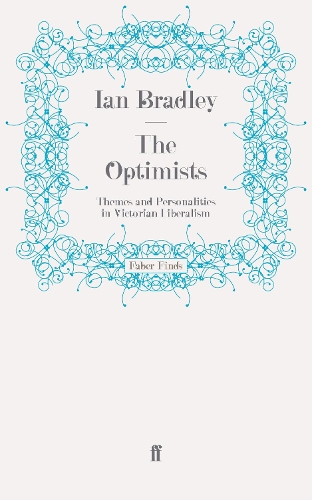
The Optimists: Themes and Personalities in Victorian Liberalism
(Paperback, Main)
Publishing Details
The Optimists: Themes and Personalities in Victorian Liberalism
By (Author) Ian Bradley
Faber & Faber
Faber & Faber
15th July 2010
Main
United Kingdom
Classifications
General
Non Fiction
320.510941
Physical Properties
Paperback
302
Width 135mm, Height 216mm, Spine 22mm
374g
Description
Ian Bradley's The Optimists was first published in 1980, when the values of Victorian Liberalism were enjoying something of a renaissance - as they are today. Politicians of different parties were once again expounding the Gladstonian principles of public economy, self-help, European unity and home rule for the constituent parts of the United Kingdom. in the Romantic movement, the industrial revolution and the general European Liberal awakening of the mid-nineteenth century and charts their collapse in the face of the predominance of class attitudes and the increasingly bitter clash of capital and labour at the end of the century. heyday, from the mid-1850s to the mid-1880s, Liberalism attracted many eminent Victorians, including leading literary figures like Anthony Trollope, George Meredith and William Makepeace Thackeray, as well as philosophers like John Stuart Mill, Lord Acton, Richard Cobden, John Bright, T. H. Green, and, of course, W. E. Gladstone. contemporary speeches and biographies, Ian Bradley has built up a picture of the complex and often conflicting forces which made men espouse the Gladstonian creed. He isolates the different strands in the Victorian Liberal Movement, the thrust and competitiveness of up-and-coming merchants and manufacturers, the love of liberty felt by rationalists and romantics alike, and the stern imperatives of the Nonconformist Conscience. He concludes that for all their differences and inconsistencies, Victorian Liberals were bound together by an all-pervasive sense of optimism and a fundamental faith in the goodness of man and the reality of progress.
Author Bio
Ian Bradley grew up in the south-east of England and has lived in Scotland for the last twenty four years. Educated at Oxford University, he was for eight years a features writer on The Times. He has also been head of religious broadcasting for BBC Scotland and taught at Aberdeen University. He is currently Reader in Church History and Practical Theology in the School of Divinity at St Andrews University, associate minister of Holy Trinity Church, St Andrews and honorary Church of Scotland chaplain at St Andrews University. He is a frequent broadcaster and contributes regularly to the Guardian, the Tablet, the Church Times and History Today.
